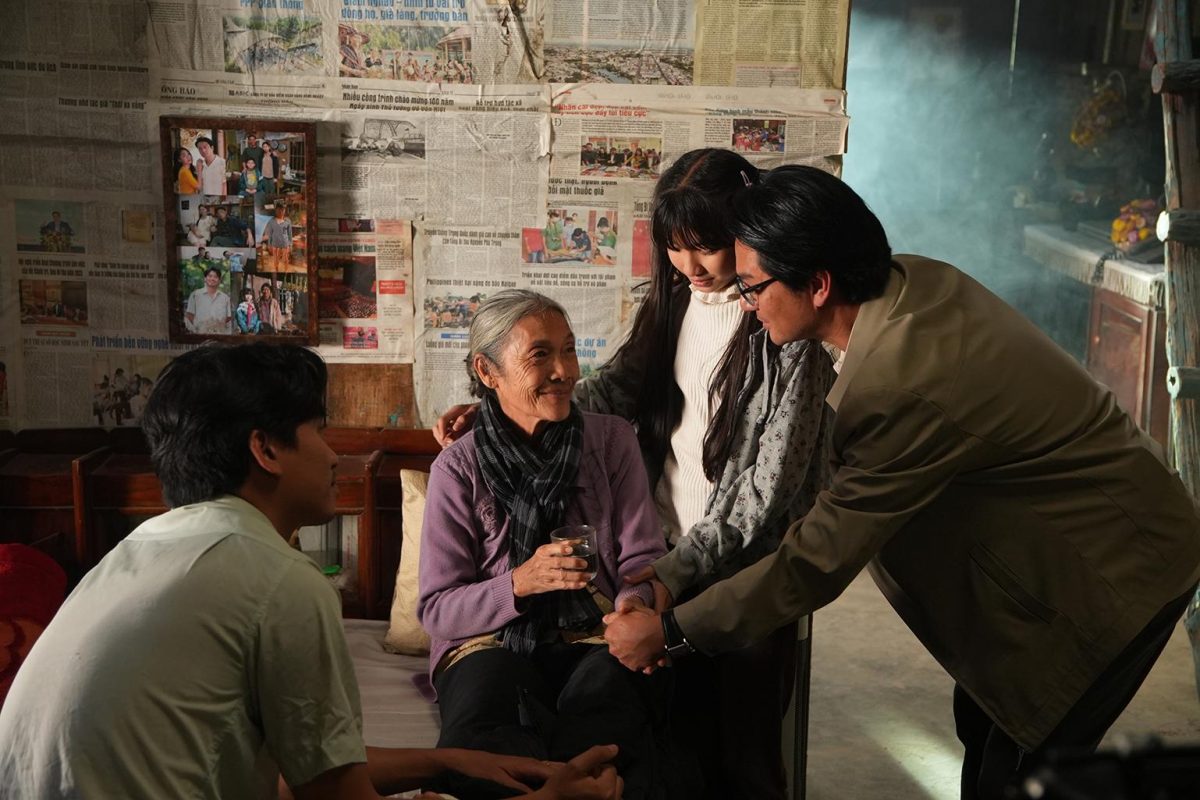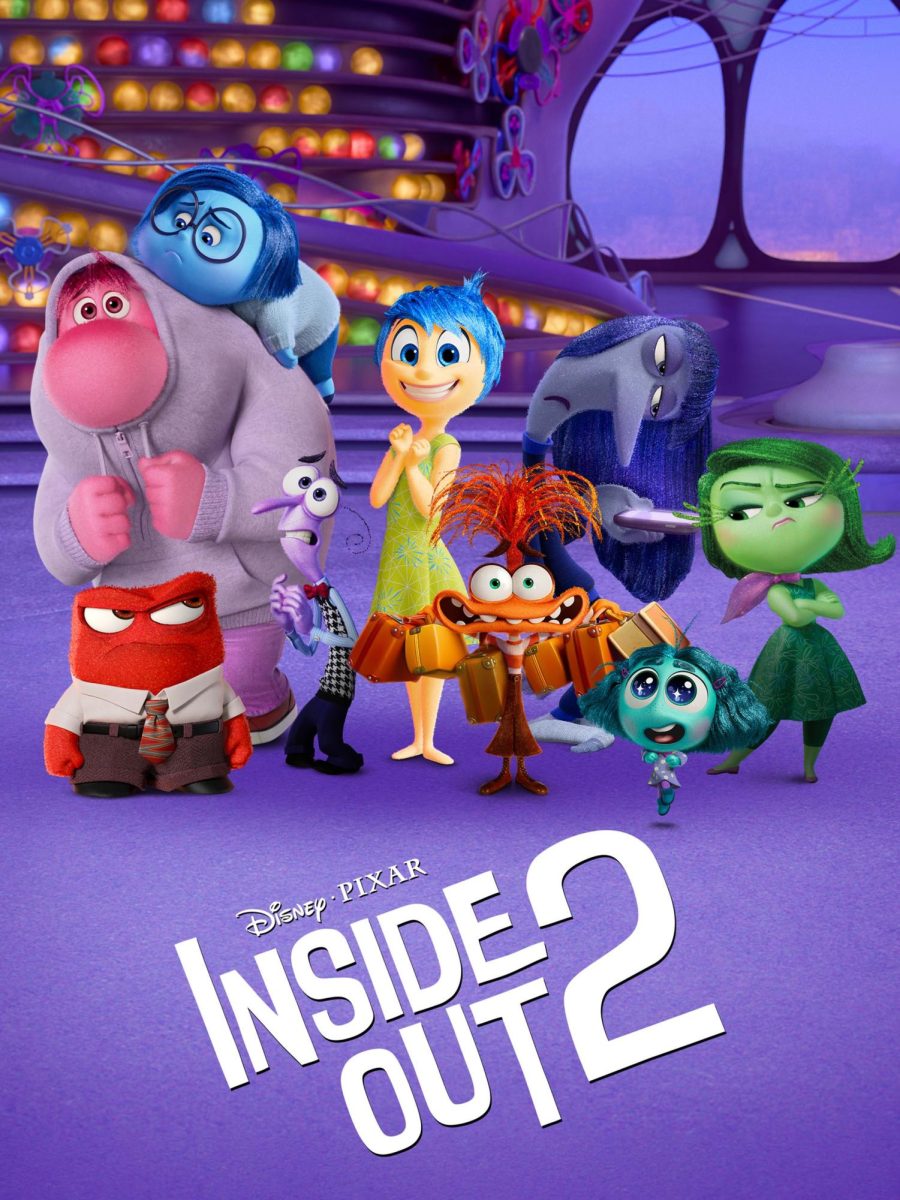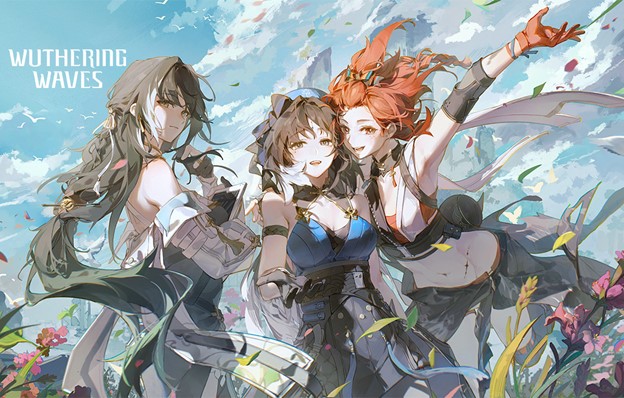If you are looking for a simple family movie night, Face Off 7: One Wish is perfect for viewing with parents, grandparents, and even kids. It emphasizes relatable family themes and everyday moments and avoids the overly dramatic elements that often dominate the genre.
Face Off 7: One Wish could also be a great introduction to Vietnamese cinema for American audiences, as director Ly Hai intentionally aimed to appeal to Western viewers. As a Vietnamese, I often find that I don’t often engage with local films due to their dramatic storytelling. However, this film effectively balances heartfelt storytelling with a light touch, making it a warm and engaging as opposed to overly dramatic.
Face Off 7: One Wish, a newest release by Ly Hai, premiered in American theaters this spring. When mentioning director Ly Hai, Vietnamese audiences immediately think of the famous Lat Mat series, known for its thrilling action scenes mixed with humor.
However, in his seventh movie, his direction shifts away from the familiar and presents a gentle, touching and tear-jerking family story.
After losing her husband early on, life has been challenging for Ba Hai, a 73-year-old, who continues to grow and sell flowers in a poor village of K’long K’lanh (Lam Dong) to raise her five children–Hai Khon (played by Truong Minh Cuong), Ba Lanh (Dinh Y Nhung), Tu Hau (Quach Ngoc Tuyen), Nam Thao (Tram Anh), and Sau Tam (Tran Kim Hai)–entirely on her own for over 30 years. Her greatest wish is to live happily surrounded by her children and grandchildren.
As they grew up, each child moved away to build their own lives, leaving only the youngest daughter Ba Lanh, who makes a living by finding crabs and catching fish and roasting coffee, to stay close to her. Family visits became infrequent as her children became busy with their own lives, making it nearly impossible for the family to gather as a whole. In fact, their family doesn’t even have a complete family photo as a whole; Ba Hai only has pictures of each of her children and their small families.
The first turning point was when Ba Hai unexpectedly breaks her leg, leaving her in a wheelchair. Her only daughter who lives with her, Ba Lanh’s daughter, also faces an emergency surgery, making it impossible for her to take care of both. Unfortunately, none of her children are able to take on the responsibility of taking care of her. After coming back-and-forth they decide that each will take turns looking after her for a week. Thinking it was a chance to meet all her children, she starts to move from house to house, she discovers the struggles they face in their lives. Despite her effort to help them, she constantly feels like a burden.
Ly Hai masterfully guides audiences through relatable family situations that touch everyone. The theme of maternal love is a well-known topic for movies. However, what makes Face Off 7: One Wish a unique movie is that it not only focuses on maternal love, but also explores the children’s feelings toward their parents and how they express these emotions in a world that seems to move too quickly. This sometimes leads them to unintentionally hurt their parents without realizing it.
Instead of making it a teary melodrama, Ly Hai balances the narrative with humor, sometimes through a simple family meal of Tu Hau. In many scenes he skillfully minimizes dialogs allowing the visuals to speak for itself.
Viewers of Face Off 7: One Wish will likely be left with questions: Have I truly loved my parents the right way? Have I done enough for my family?
In Face Off 7: One Wish, each character is given an appropriate amount of screen time and has their own distinct highlights, and each actor is given the opportunity to shine in his or her roles. The film features nearly 50 principle and supporting actors – yet director Ly Hai makes every role feel essential for the movie. Almost all of the actors in the film play their role perfectly.
In addition to familiar faces like Truong Minh Cuong, Quach Ngoc Tuyen, and Thanh Thuc, new actors like Tin Nguy and Tram Anh, all excel in their roles. Together they contribute to a deeply meaningful story for the audiences.
Another really big plus is that Ly Hai successfully showcases the beauty of Vietnam on the big screen. The movie starts off in the K’long K’lanh village, a small village located in two famous tourist cities, Nha Trang and Da Lat. Ba Hai’s house is constructed to reflect the traditional architecture. Then it’s off to Hanoi, the capital of Vietnam, where the director highlighted the stunning urban landscapes. The film also features an impressive fishing port in My Tan, Ninh Thuan. He even brings the viewer to the lush tea hills of Bao Loc and back to Ho Chi Minh, the busy city in Vietnam.
Ba Hai lives among everlasting flowers fields, where the movie is mostly centered. The everlasting flower is an important symbol in this movie. Everlasting flowers represent immortality and eternal love. And as I see it, in the context of this film, the flowers symbolize a mother’s love, enduring family bonds that are emphasized throughout the movie.
Ly Hai even brings traditional Vietnamese traditional events on screen. The Than Nam Hai festival, usually celebrated by fishermen with the hope of safe fishing, was vividly recreated. Every year from June 15th – 17th, people would gather in the Southeast region on beaches to party and pray. They believed in the Elderly Fish (whales) to spiritually support them when they encounter strong waves and winds or when the boats encounter serious conditions during fishing season.
The music also serves as an important role to enhance the movie. Melodies were blended in at the right moment, conveying the characters emotions and enriching the atmosphere.
The color palette Ly Hai chose was amazing, using warm yellow tones to take viewers back to the rich memories of the family. In contrast, her children’s homes show a cooler tone suggesting their bustling, chaotic lives.
Unfortunately, despite Face Off 7: One Wish‘s strengths, the plot line was a little too predictable. Audiences will be able to guess the solution to each character’s problems. Each of Ba Hai’s children’s families have their own problems but the problems get solved too easily. These problems are revealed for 15-20 minutes but then solved with only 1 or 2 lines from Ba Hai.
Leaving aside the predictable plot and quick resolutions, Face Off 7: One Wish is still a touching movie about family relationships and love and this is only strengthened by Ly Hai’s skillful directing skills, strong acting performances, and stunning visuals of Vietnam. The blend of humor and heartfelt moments encourages audiences to think about their own relationships. Overall, this film is a must-watch movie, if anyone is looking for a touching story.
Rating: 4.5/5







